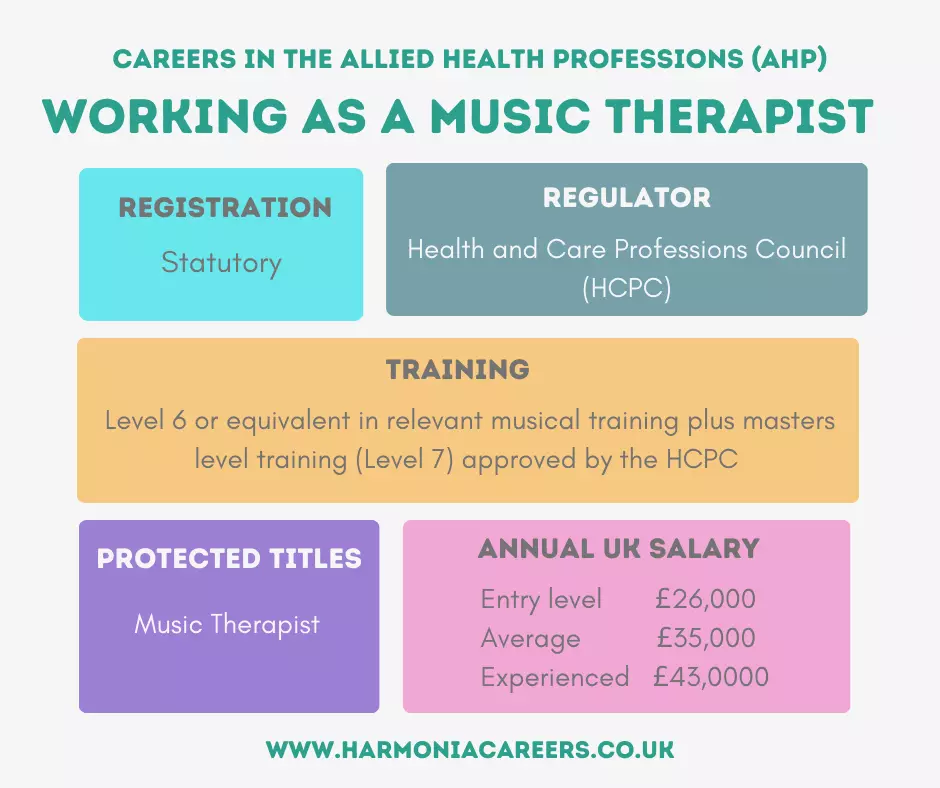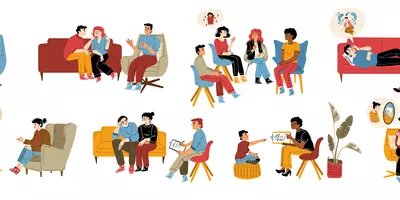
18 Aug 2025 ● Harmonia Careers
How to become a Music Therapist
What is Music Therapy?
Music therapy is a form of psychotherapy that uses music, sound, and rhythmic interaction to support emotional, cognitive, social, and physical wellbeing. In safe, structured sessions, clients may engage in playing instruments, singing, improvisation, composing, or listening to music.
Dramatherapists are trained to deliver psychotherapeutic techniques, to help individuals explore feelings, process experiences, and improve communication and self-awareness, alongside the creative element of the sessions.
Music therapists work with people of all ages and backgrounds in diverse settings, including the NHS (Allied Health Profession), schools (mainstream and special education), hospitals, hospices, adult social care, community centres, and private practices. Some also engage in partnerships with welfare or criminal justice services.

Why consider a career in Music Therapy?
- Rising demand: Mental health and wellbeing services are expanding, and creative therapies like music therapy are increasingly valued for their unique impact.
- Holistic benefits: Music therapy supports a wide range of needs—including emotional expression, trauma recovery, stress management, neurological conditions, and social or cognitive support—through a non-verbal, accessible medium.
- Professional recognition: Music therapy is a registered Allied Health Profession in the UK. Practitioners must register with the Health and Care Professions Council (HCPC), which ensures professional standards, public protection, and credibility.
A significant majority of music therapists in the UK report high levels of job satisfaction, with many stating that their work is deeply fulfilling and meaningful. Music therapists generally experience moderate stress levels and low burnout, indicating a healthy work-life balance.
— 2025 evidence brief by eWIN
Step-by-Step Guide to becoming a Music Therapist

Step 1: Education & Training
- Complete a Master’s-level HCPC-approved course in Music Therapy (e.g., MA or MSc). These typically include both theoretical learning and a substantial clinical placement.
- Alternatively, explore the Level 7 Degree Apprenticeship (Master’s-level) in Arts Therapy (Music Therapy stream), although these opportunities are rare and competitive.
Step 2: Gain Practical Experience
- Engage in music-related placements, volunteering, or work experience in settings like schools, care homes, hospitals, or community groups. This hands-on experience is often required for entry to MA courses.
Step 3: Register with HCPC
- After completing an approved postgraduate course or apprenticeship, you must register with the HCPC to practice legally as a Music Therapist in the UK.
Step 5: Build Your Career & Explore Specialisms
- Consider specialising in specific client groups or settings e.g., children and young people, mental health, gerontology, neurological rehabilitation, or palliative care.
- Be aware that many music therapists in the UK work in part-time roles across multiple settings, or combine therapy work with freelance musical work.
Step 4: Join the Professional Body
- A professional body like the British Association for Music Therapy (BAMT) offers vital support for professionals and students.



